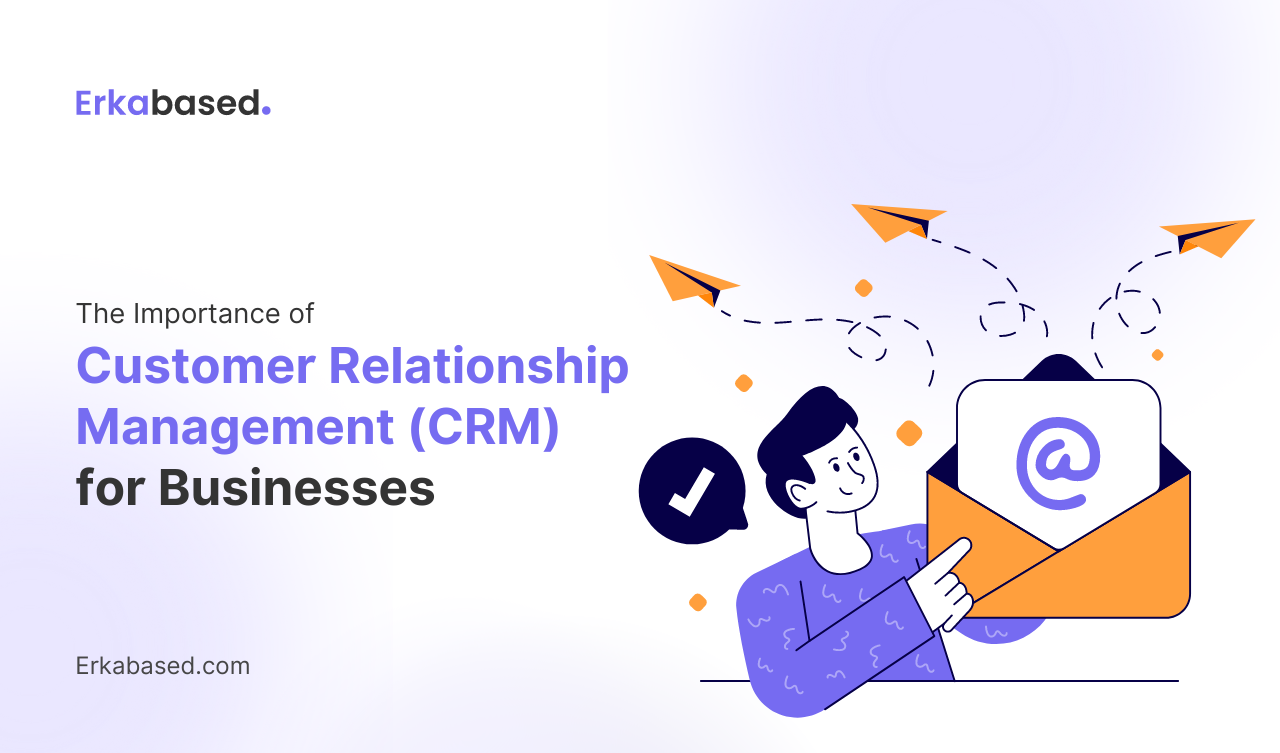Introduction to CRM
In today’s fast-paced business environment, building and maintaining strong customer relationships is more crucial than ever. Customer Relationship Management (CRM) systems are designed to help businesses manage interactions with current and potential customers. A CRM solution can streamline processes, improve customer service, and ultimately drive sales growth.
But what exactly is CRM? At its core, CRM involves using technology to organize, automate, and synchronize business processes—primarily sales activities, but also those for marketing, customer service, and technical support. By consolidating customer information into a single database, CRM systems enable businesses to better understand their customers' needs and behaviors.
Importance of CRM for Business Owners
For business owners, the importance of CRM cannot be overstated. Here’s why:
Enhanced Customer Service
CRM systems provide a centralized repository for all customer information, making it easier for customer service teams to access and use that data. This leads to quicker response times and more personalized service.
Increased Sales
By tracking customer interactions and identifying opportunities for upselling or cross-selling, CRM systems can help businesses increase their sales. Automation features can also streamline sales processes, allowing sales teams to focus on closing deals rather than administrative tasks.
Improved Customer Retention
Retaining existing customers is generally more cost-effective than acquiring new ones. CRM systems help businesses keep track of customer interactions and preferences, enabling personalized follow-ups and loyalty programs that boost customer satisfaction and retention.
Data-Driven Decisions
CRM systems provide valuable insights into customer behavior and business performance. By analyzing this data, business owners can make informed decisions that drive growth and efficiency.
Choosing the Right CRM for Your Business Needs
Selecting the right CRM system can be a daunting task, especially with so many options available. Here are some key considerations:
Scalability
Choose a CRM system that can grow with your business. Look for a solution that allows you to add new users and features as needed. This ensures that as your business expands, your CRM can handle increased data and more complex processes without any disruption.
Integration
Ensure that the CRM system can integrate seamlessly with your existing tools and systems, such as email marketing platforms, accounting software, and e-commerce solutions. Effective integration helps streamline workflows, reduces data silos, and enhances overall productivity by allowing different systems to communicate with each other effortlessly.
Usability
A CRM system should be user-friendly and easy to navigate. Look for a solution with an intuitive interface and robust customer support to help your team get up to speed quickly. A user-friendly CRM reduces the learning curve, increases adoption rates among your team, and minimizes the time spent on training and troubleshooting.
Customization
Every business is unique, so it's important to choose a CRM system that can be customized to meet your specific needs. Look for solutions that offer customizable fields, workflows, and reports. Customization ensures that the CRM can be tailored to your business processes, making it more effective and relevant for your particular operations.
Cost
While it's important to invest in a quality CRM system, it's also essential to consider your budget. Compare pricing plans and choose a solution that offers the best value for your money. Ensure that the cost aligns with the features and support offered, so you don't overspend on unnecessary functionalities or miss out on critical tools due to budget constraints.
Implementing CRM Strategies for Enhanced Customer Service
Once you've chosen the right CRM system, it's time to implement strategies that will enhance your customer service. Here are some tips:
Automate Routine Tasks
Use the automation features of your CRM system to streamline routine tasks such as sending follow-up emails, creating customer profiles, and scheduling appointments. Automation not only saves time but also reduces the likelihood of human error, ensuring consistency and reliability in your processes. This will free up your team to focus on more strategic activities, such as building stronger relationships with clients.
Personalize Customer Interactions
Leverage the data stored in your CRM system to personalize customer interactions. Address customers by their names, remember their preferences, and tailor your communications to their needs. Personalization makes customers feel valued and understood, which can significantly enhance their overall experience with your brand. Use insights from past interactions to anticipate their needs and offer relevant solutions.
Monitor Performance
Regularly review the performance metrics provided by your CRM system. Identify areas for improvement and adjust your strategies accordingly to ensure you’re meeting your customer service goals. Monitoring performance helps you stay proactive, addressing issues before they escalate and continuously refining your approach to better meet customer expectations.
Measuring the Success of Your CRM System
Measuring the success of your CRM system is crucial to understanding its impact on your business. Here are some key performance indicators (KPIs) to track:
Customer Satisfaction
Monitor customer satisfaction scores and feedback to gauge how well your CRM system is helping you meet customer needs. High satisfaction scores usually indicate that your customer service strategies are effective, while lower scores can highlight areas that need attention. Use surveys and feedback forms to gather this data regularly.
Sales Growth
Track sales metrics such as conversion rates, average deal size, and sales cycle length to assess the impact of your CRM system on revenue growth. An effective CRM system should help you identify and capitalize on sales opportunities, leading to increased revenue and a shorter sales cycle. Compare these metrics over time to measure progress.
Customer Retention
Measure customer retention rates and the effectiveness of your loyalty programs. Look for trends and patterns that can inform your retention strategies. High retention rates often indicate strong customer loyalty and satisfaction, while lower rates may suggest the need for improved engagement and retention efforts.
Productivity
Evaluate how the CRM system is impacting team productivity. Track metrics such as time spent on administrative tasks versus time spent on sales activities. An effective CRM system should reduce the time spent on mundane tasks, allowing your team to focus on high-value activities such as closing deals and nurturing customer relationships. Analyze these metrics to ensure your team is working efficiently.
Conclusion
Customer Relationship Management (CRM) systems are essential tools for small and medium business owners to enhance customer service, increase sales, and improve overall efficiency. These systems help manage and analyze customer interactions and data throughout the customer lifecycle, aiming to boost retention and drive sales growth. By selecting the right CRM for their needs, implementing effective strategies, and measuring success through key performance indicators (KPIs), businesses can streamline operations, make informed decisions, and achieve sustainable growth in a competitive market. Using a CRM system provides better customer insight and fosters a more personalized approach to engagement.
At Erkabased, we specialize in creating and implementing CRM solutions tailored to your business needs. Whether you're just starting with CRM or looking to optimize your existing system, our team of experts is here to help. Reach out to us today to learn how we can support your CRM journey and take your business to the next level.






